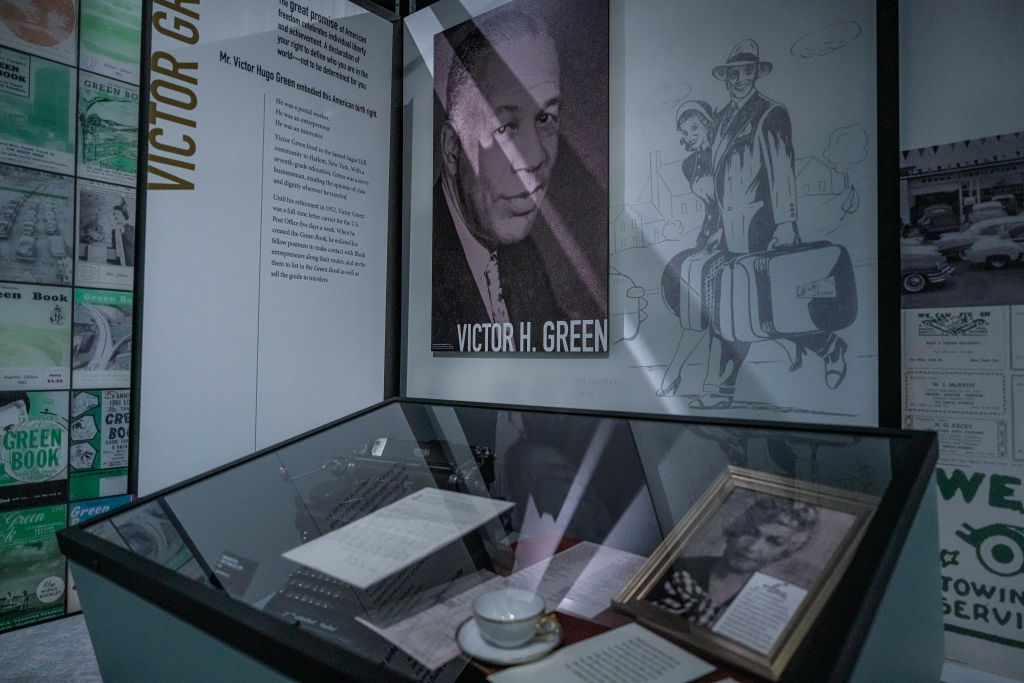Harvard University Buys Rare Copy Of Original Jim Crow Era Green Book For $50K

The Houghton Library at Harvard University is now the owner of the rare copy of the original Green Book, the Jim Crow era travel guide that listed safe places for Black travelers to visit, The Boston Globe reports.
The purchase actually took place in March 2024 to assist researchers, students, and visitors who want to take a deep dive into how Black travelers navigated through a segregated America under Jim Crow.
Victor Hugo Green’s The Negro Motorist Green Book pointed people in the direction of businesses where they would be accepted—and safe—regardless of their skin color. The first international edition lists a range of hair salons, pharmacies, restaurants, and other businesses across the United States, Bermuda, Mexico, and Canada.
Close to 100 businesses were located in Massachusetts, home to Harvard, where three are still open in Boston.
Candacy Taylor, cultural documentarian and author of Overground Railroad: The Green Book and the Roots of Black Travel in America, said Green, a postal worker from Harlem, New York, originally published the guide in 1936. He used it as a way to navigate through his own struggles as a Black man who enjoyed traveling. With a sole focus on the Manhattan borough, the book soon became popular, making an appearance in every state east of the Mississippi River by 1940.
According to the university, Harvard acquired a 1949 international version that included Canada and Mexico. Houghton’s Gore Vidal Curator of Modern Books and Manuscripts, Leslie Morris, explained the purchase was part of an effort to diversify the library collections. When the library was inaugurated in 1942, a Black travel guide was not considered a collectible item.
“While Harvard may be the largest university in the world, it collected certain things to support teaching and research, but this was not something that anyone thought was important,” Morris said.
“But in the context of the 20th and 21st century, when we’re trying to document more deeply the Black experience, this is really an important document for our library. One of our priorities has been to diversify the collection and try to remediate some oversights that our predecessors made.”
The library purchased the 80-page guide from a Manhattan-based auctioneer for $50,000 with the assistance of Alphonse Fletcher University Professor and director of the Hutchins Center for African & African American Research, Henry Louis “Skip” Gates Jr.
However, other historians like Byron Rushing, a former state representative, look at the acquisition as problematic. As the original Green Book price was $0.75, Rushing thinks its rightful place is somewhere more accessible to Black people, like the Museum of African American History in Boston.
“They [Harvard] didn’t think Negroes were important in the 1930s and ‘40s,” Rushing said. “It never dawned on them that they should collect anything that was being published by Negroes right then.”
While Taylor understands Rushing’s thoughts, she says the library has been instrumental in Black and African history studies and highlights the resources Harvard has for the book’s delicate upkeep. “I’m thankful that an institution as significant as Harvard has it to elevate its purpose and its meaning in the cultural zeitgeist,” Taylor said.
Visitors can register and request a time to read the book as it sits in a protective case on cold and humidity-controlled stacks.
RELATED CONTENT: Meet The Black Woman Revisioning The Historic Green Book Travel Guide
Welcome to Billionaire Club Co LLC, your gateway to a brand-new social media experience! Sign up today and dive into over 10,000 fresh daily articles and videos curated just for your enjoyment. Enjoy the ad free experience, unlimited content interactions, and get that coveted blue check verification—all for just $1 a month!
Account Frozen
Your account is frozen. You can still view content but cannot interact with it.
Please go to your settings to update your account status.
Open Profile Settings